Contextualising Kargil after Article-370
Bashir Ahmed
Research Scholar DU
After the new political alteration of Ladakh, lots have been discussed, spoken about, and wrote on this topic. After analysing the whole scenario, since it becomes a Union Territory, we can avow that Ladakh is approaching a new social system. Many old-fashioned social structures may vanish or collapse soon, from the living style to the new method of earning; we are transmuting from a sustainable and self-sufficient society to a dependable and vulnerable society, where everything is at stake i.e. the concern of ethnicity, identity, language, societal norms, and ethics, bio-network, natural resources and many more. In this unpredictable complex situation, we need a mature leadership who has the vision and the capacity to deal with the current status quo wisely and rationally.
This article is not devoted to the political perspective of Ladakh, but the topic I am going to discuss is somehow directly or indirectly melange with politics. So it is not possible to discuss the phenomenon with alienating the political perspective aside.
I have expressed my concerns on diverse topics ranging from Cluster University to Sixth Schedule from the different potential perspectives, in the context of the whole Ladakh (Kargil and Leh), but me being from the Kargil district, I felt that it’s my prime responsibility to raise the concerns which are devoted to Kargil.
We have been witnessing since we started to scrutinize the things that happen around us. How our socio-political structure is functioning and what are the factors that influence while electing the political representatives in our district. The election ecosystem is somehow managed and controlled by influential religious institutions and the elected representatives are always winning when backed by them. The last Lok Sabha election is a concrete example of how deeply our socio-political base is fractured. Despite the many rounds of talks between the heads of these institutions, they failed to come up with a common agenda to elect a single representation from the district.
We as a stakeholder’s equally responsible if any mishappening or calamity falls on us because few dogmatic people trying hard these days to push us on fire. We need to be vigilant and it’s high time to think over it by rising over the institutional ideology.
How much we lose and gain from this ideological conflict can be observed clearly from the political development of the last three to four years.
The 2019 Lok Sabha election was one of the golden chances for both religious organizations to win the hearts and confidence of the public by nominating a single candidate with the consent of both. But they have failed again to prove their loyalty to the district and gave preference to their ideological prejudices over the honor and dignity to Kargil and both have failed to elect a single representative by the consent of both. Before their nomination, people were highly expecting that they would not displease the public by repeating the past mistakes of nominating their own candidates separately.
This was the last Lok Sabha election and the candidate backed by BJP won the election and become the 11th Lok Sabha member from Ladakh (I am not demeaning the public mandate, democracy works where people rise over orthodoxy, prejudices, and biases), and within a half-year of his tenure on 5th August 2019, Ladakh become constitutes the Ninth Union Territory of India after diluting the Article 370 and 35A.
After Ladakh became a new Union Territory, Kargil started receiving their deeds of discord in the form of discrimination. The announcement of the formation of Cluster University in Ladakh, with its headquarters in Leh district, was the first discrimination encountered by Kargil under UT. After that, the establishment of major head offices in Leh and the list of discrimination continue till date, with the most recent example being the establishment of a Central University in Leh.
At the early stages of discrimination, Kargilis were vocal enough to fight for their equal share, either to the concern Cluster University or to the rotation of Governor Secretariat. But with each passing day, the zeal and enthusiasm slowly disappear. Maybe the reason could be that people are exhausted from the daily protests and give up on the fight, or maybe they feel alienated and suffocated within the political ecosystem of UT. Because everything is leaning towards Leh, whether the establishment of institutions like National Institute for Sowa-Rigpa, National Skill Training Institution, Institute of Hotel Management, GB Pant Institute of Himalayan Environment & Developmental Regional Centre, or the examination centers of UPSC, SSC, UGC NET, SBI, interview centers, etc. If so, how Kargilis’ socio-political and socio-religious organizations will deal with and what are their future prospects?
The silence of Kargil leadership also expresses that they are not carrying out any productive vision for dealing with the menace of leadership crises, and to invite ideas on the ongoing bias within the district. This is a nourishing stage for the newborn UT. As we cannot expect rice from the barley seed similarly, we will not expect a prosperous future for our district without struggle. We need to grab our share from the UT administration and central government respectively, which are our fundamental and constitutional rights.
There is a need for the common people to rise above the orthodox hegemonic political culture. In what rationale are we blaming others for discriminating against us? Our political structure is actually controlled by the people who are still subsumed by their hegemonic ideological dogmas. The silence on the current affairs is a reflection of our failed leadership.
If the current trends remain to continue, and we fail to react to the current issues, we must be ready to face unpredicted catastrophes in the future. Our current political discourse entered a very strange phase, neither we are accepting nor opposing with any decision of the government. It seems that we are puzzled by the ongoing political configuration and failed to classify our roles in this multifaceted governing web.
This leadership crisis is not a sudden and a new concept in Kargil. Earlier, before the new political development, we have been witnessing the influences of religious institutions to elect their backed candidate for the post of Chief Executive Councilor and Executive Councilors and within a single tenure many times the government had toppled and controlled the throne by hook or crook. We as a society have also failed many times to come to a focal point to choose a deserved representation for both the State Assembly and Lok Sabha seats. We need to wean off our political control from a few dogmatic individuals and we need to elect our representatives based on the qualification rather than the supremacy of a few. Until and unless we detach the ‘politics and religion’ we will not be able to move forward as a progressive society. The innumerable dent we tolerate till date may not remain to continue in the future and our coming generation will not suffer more.
Note: The views expressed by the author are personal.
The original version of this article is published in Voice of Ladakh
The author was born and brought up in Kargil Ladakh. Currently, he is a research scholar at Delhi University.
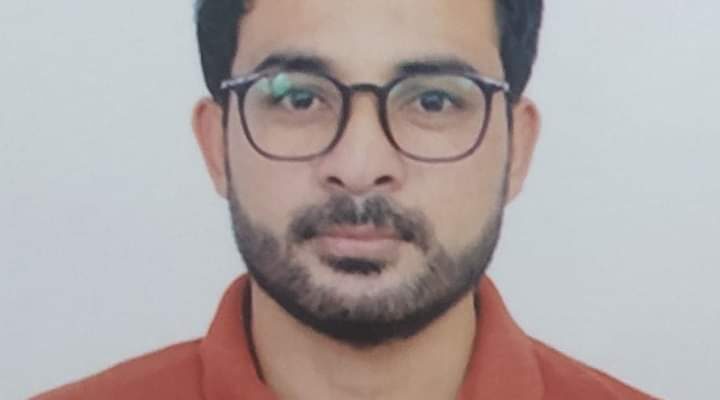
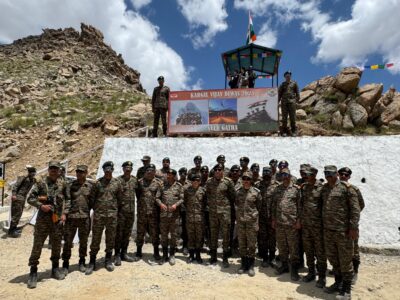
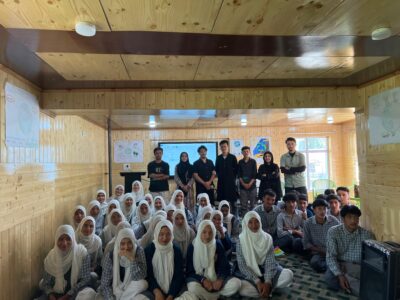
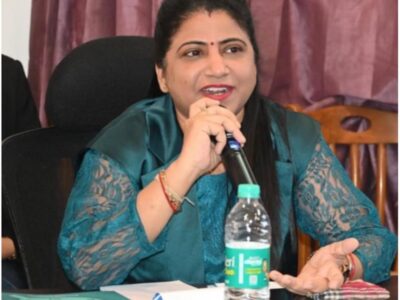
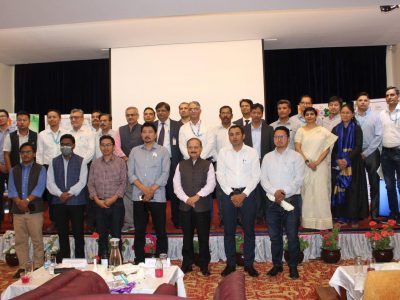
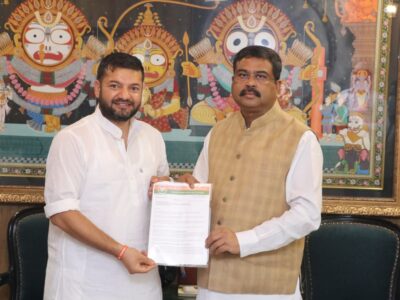
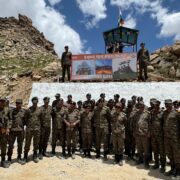
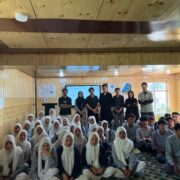
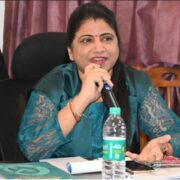
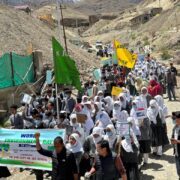
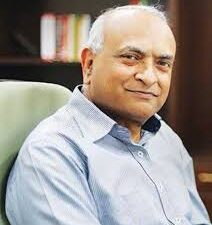
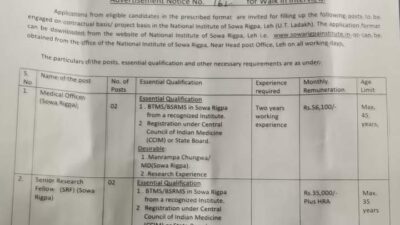

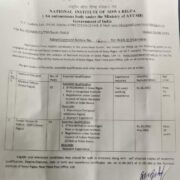
Comments